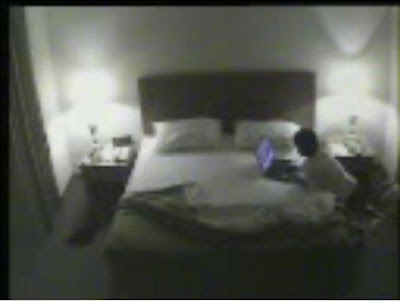In the recent LoyarBurok “Msia I Can Series: The Right To Your Privacy” on BFM Radio, which I have been reliably informed is one of the top hit links on BFM (Ed: Hardly surprising, given that it is blessed by the soft, furry touch of His Supreme Eminenceness Lord Bobo), I told a story about neighbours fighting over CCTVs which faced a neighbour’s house.
In the case of Lew Cher Phow @ Lew Cha Paw & 11 Ors v Pua Yong Yong & Anor, the occupants of a house at Skudai, Johor initiated an action against their neighbour for invasion of privacy sometime in 2007.
In this case, the Defendants had installed CCTVs around their house and one of the CCTVs captured part of the Plaintiffs’ house, notwithstanding that the CCTV also captured the front yard of the Defendants’ house. The Plaintiffs complained that they were being spied on and therefore their right to privacy had been infringed. The Defendants claimed that the CCTVs were for safety reasons.
The Plaintiffs filed an interim injunction against their neighbour requesting that the CCTVs be taken down. However, the application was dismissed by the High Court on the grounds that, among others, the tort of invasion of privacy is not recognised in Malaysia (see Lew Cher Phow @ Lew Cha Paw & 11 Ors v Pua Yong Yong & Anor [2009] 1 LNS 1256).

The case went to trial and recently the High Court allowed the CCTV to be taken down.
Justice Vernon Ong, like the judges in Maslinda Ishak v. Mohd Tahir Osman & Ors [2009] 6 CLJ 653 (impliedly recognised the tort); Lee Ewe Poh v Dr. Lim Teik Man & Anor [2010] 1 LNS 1162; and Sherrina Nur Elena bt Abdullah v Kent Well Edar Sdn Bhd (Sabah High Court Suit No. K22-187-2009-I (Unreported)), recognised the right to privacy and the tort of invasion of privacy in Malaysia.
According to the learned Judge, the test to determine whether there is an invasion of privacy of rights is:
Arising from this case are two competing values: safety and privacy. Does the defendants’ fear for their safety and security override the right to privacy of the plaintiffs? Does the CCTV surveillance constitute an intrusion or interference with plaintiffs’ right to respect for their private and family life and their home? Is the CCTV surveillance an unreasonable intrusion upon the privacy of the plaintiffs?
Ultimately this is a question of balance between the rights of the owner of the CCTV camera (the defendants) and the CCTV camera’s target (the plaintiffs).
The learned Judge held that the balance lies on the Plaintiffs. The right to privacy is a fundamental human right. On the peculiar facts of this case, the right to privacy consists of the plaintiffs’ right to private and family life and home. This is a basic right and need which everyone cherishes and holds dear. The well known saying that a man’s home is his castle holds true.
The recognition of privacy rights and invasion of the same have a tremendous impact to Malaysians. This would include the following:
- Employees’ right to privacy. Employers would now have to take into account of the same. Each task which affects employees’ privacy will need to be subject to a privacy impact assessment.
- Public authorities’ investigation powers. They now would need to take into account of an individuals’ rights. They cannot force suspects or witnesses (like Teoh Beng Hock‘s case) to reveal their personal email and computer.
- Celebrities’ right to privacy.
- Media’s right to express themselves. Media will now have to take into account of any individuals’ privacy right when reporting stories. Most litigations involving privacy rights in United Kingdom are fought by the media.
- The advent of Superinjunctions? Superinjunction, also known as a gagging order, refers to an order that prevents any parties from reporting details of a court case including mentioning the fact that the injunction has been taken out. This injunction was taken by many UK celebrities. Footballers John Terry and Michael Owen are known to have taken a superinjunction over their alleged extramarital affairs.
- Bloggers’ rights. As a consequence to the effect on authorities, bloggers’ private information such as password to their personal email and computer data are protected by the right to privacy. Authorities must take measures to ensure that their investigation does not affect the bloggers’ privacy right. However, a blogger’s identity is not protected by right to privacy (see The Author of A Blog v Times Newspapers Ltd [2009] EWHC 1358 (QB) (16 June 2009))
The above list is non exhaustive. It is interesting to see how the right of privacy will develop further in Malaysia.
Download Written Judgement of Lew Cher Phow @ Lew Cha Paw & 11 Ors v Pua Yong Yong & Anor by Justice Vernon Ong.

If your company is in any kind of controlled market, there are probably a variety of regulating organizations with guidelines that require tracking, history storage, and auditing guidelines. monitoring app
how about communications surveillance / interception without court order (including internet snooping)?